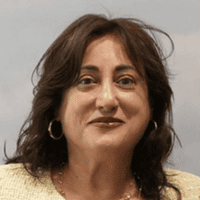IEEE Geoscience and Remote Sensing Society
Fourth IADF School on
Computer Vision for Earth Observation
Welcome Adress: Auditorium Sant’Agostino
IEEE Geoscience and Remote Sensing Society
Fourth IADF School on
Computer Vision for Earth Observation
Remote sensing techniques are utilized for a better understanding of the Earth and have impacted applications in weather forecasting, tracking biodiversity, land management, post-disaster relief, rescue management, and policymaking, to name a few. The amount of data acquired from sensors onboard Earth Observation (EO) satellites is increasing. For example, it is expected that Sentinel satellites will produce ten terabytes of EO data once fully operational. The availability of data from multiple sensors and satellites provides an opportunity to develop innovative methodologies for remote sensing applications.
As the IEEE GRSS IADF, after the success of the first school on Computer Vision for Earth Observation (CV4EO), we are pleased to announce its fourth edition open to everybody who has a strong motivation and interest in the topics addressed by it. This school will focus on applying CV methods to address challenges in remote sensing. It will be held in presence at the University of Sannio, in Benevento (Italy).
This school will focus on applying CV methods to address challenges in remote sensing. This school will contain a series of lectures on the existing methods utilized for analyzing satellite images, along with the challenges encountered. Each lecture will be followed by a practical session where the participants will go deep into the details of the techniques discussed in the lecture using some commonly used programming languages (e.g., Python) and open-source software tools. The material related to both lectures and practical sessions will be released to the audience.
The school is open to everybody who has a strong motivation and interest in the topics addressed by it. Participation is free of charge a completely supported by IEEE GRSS. The number of participants is limited to 60 to guarantee high-quality lessons with good interaction. If a higher number of registrations is received, the organizing committee will select 60 participants and the recorded lessons of the course will be later distributed through the GRSS YouTube channel. All will receive a certificate confirming their attendance at the school.Discover unbeatable value in every detail with our replica panerai.
Covered Topics
Contact emails:
CEST: Central European Summer Time
September 16, 2025
18:30 CEST
Light Dinner
September 17, 2025
09:00 – 09:30 CEST
GREETINGS
09:30 – 11:00 CEST
Self-Supervised Learning for Multi- and Hyperspectral Foundation Models (Part I)
Dr. Behnood Rasti and Mr. Nassim Ait Ali Braham, Technische Universität Berlin, Berlin, Germany, Institute for the Foundations of Learning and Data, Germany, German Aerospace Center, Germany, Technical University of Munich, Germany
11:00 – 11:20 CEST
COFFEE BREAK
11:20 – 12:50 CEST
Self-Supervised Learning for Multi- and Hyperspectral Foundation Models (Part II)
Dr. Behnood Rasti and Mr. Nassim Ait Ali Braham, Technische Universität Berlin, Berlin, Germany, Institute for the Foundations of Learning and Data, Germany, German Aerospace Center, Germany, Technical University of Munich, Germany
12:50 – 13:40 CEST
LUNCH
13:40 – 15:10 CEST
Towards Realistic and Trustworthy Super-Resolution for Multispectral Remote Sensing Images (Part I)
Prof. Luis Gómez-Chova and Mr. Cesar Aybar, Image Processing Laboratory (IPL), University of Valencia,
Spain
15:10 – 15:30 CEST
COFFEE BREAK
15:30 – 17:00 CEST
Towards Realistic and Trustworthy Super-Resolution for Multispectral Remote Sensing Images (Part II)
Prof. Luis Gómez-Chova and Mr. Cesar Aybar, Image Processing Laboratory (IPL), University of Valencia,
Spain
17:00 CEST
CITY TOUR
September 18, 2025
09:30 – 11:00 CEST
Quantum Machine Learning for Earth Observation (Part I)
Prof. Silvia Liberata Ullo and Dr. Alessandro Sebastianelli, University of Sannio, Italy, ESA ɸ-lab, Italy
11:00 – 11:30 CEST
COFFEE BREAK
11:30 – 13:00 CEST
Quantum Machine Learning for Earth Observation (Part II)
Prof. Silvia Liberata Ullo and Dr. Alessandro Sebastianelli, University of Sannio, Italy, ESA ɸ-lab, Italy
13:00 – 14:00 CEST
LUNCH
14:00 – 15:30 CEST
POSTER & PANEL
15:30 – 16:00 CEST
COFFEE BREAK
16:00 – 17:30 CEST
POSTER & PANEL
18:30 – 22:00 CEST
GALA DINNER
September 19, 2025
09:30 – 11:00 CEST
Visual Question Answering on Remote Sensing Images (Part I)
Prof. Sylvain Lobry and Ms. Lucrezia Tosato, Université Paris Cité, France
11:00 – 11:30 CEST
COFFEE BREAK
11:30 – 13:00 CEST
Visual Question Answering on Remote Sensing Images (Part II)
Prof. Sylvain Lobry and Ms. Lucrezia Tosato, Université Paris Cité, France
13:00 – 14:00 CEST
LUNCH
14:00 – 15:30 CEST
Physics aware and explainable AI for EO image understanding (with demo of Digital Twin Earth system components) (Part I)
Prof. Mihai Datcu, German Aerospace Center, Germany
15:30 – 16:00 CEST
COFFEE BREAK
16:00 – 17:30 CEST
Physics aware and explainable AI for EO image understanding (with demo of Digital Twin Earth system components) (Part II)
Prof. Mihai Datcu, German Aerospace Center, Germany
17:30 – 18:00 CEST
FINAL EXAM AND SURVEY
18:00 – 18:15 CEST
CLOSING

ullo@unisannio.it

gemine.vivone@imaa.cnr.it

rww.haensch@gmail.com

c.persello@utwente.nl

gulsen.taskin@itu.edu.tr

lungadd@ornl.gov

ujjwal.verma@manipal.edu
Italy dominates the World Heritage Sites list, according to UNESCO, the United Nations’ cultural branch. It has 43 locations listed considered as places of outstanding cultural and historical value. This is more than any other European country and practically all major styles of Western architecture can be found in Italy.




Deadline for registration: June 8th, 2025